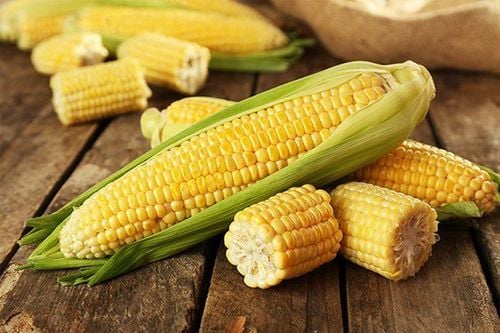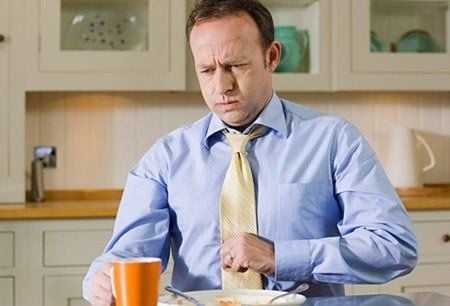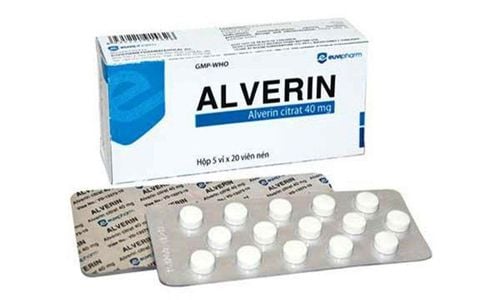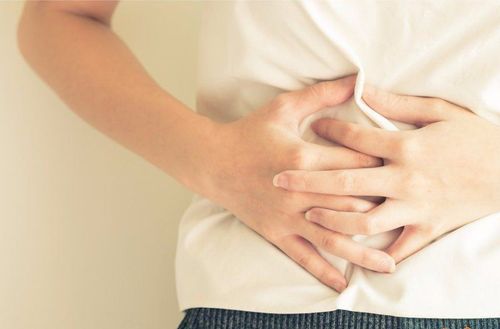Cơ thể đào thải một phần lượng chất thải qua phân, chủ yếu là các nguyên liệu sau khi thức ăn đã được tiêu hóa. Tuy nhiên, đôi khi bạn có thể nhận thấy rằng một số loại thức ăn không tiêu hóa hết, có vẻ nguyên vẹn và không thay đổi trong phân. Mặc dù điều này thường không phải là một biểu hiện đáng lo ngại, nhưng có thể trong một số trường hợp khi một người có thức ăn không tiêu trong phân cần đến gặp bác sĩ.
1. Nguyên nhân thức ăn không tiêu hóa hết
Thức ăn không tiêu và còn sót lại trong phân phổ biến nhất là thức ăn dạng sợi. Mặc dù cơ thể có thể phân hủy hầu hết các loại thực phẩm, nhưng phần lớn chất xơ vẫn được xem là khó tiêu hóa. Tuy nhiên, ăn chất xơ có thể mang lại nhiều lợi ích, vì nó làm tăng khối lượng lớn trong phân và giúp phân dễ được thải ra ngoài.
Các khối phân cồng kềnh hơn sẽ kích thích tạo ra các nhu động ruột và dễ di chuyển hơn. Các loại thực phẩm giàu chất xơ mà phần lớn thường không tiêu hóa được bao gồm:
- Đậu
- Ngô
- Hạt ngũ cốc, chẳng hạn như quinoa
- Đậu Hà Lan
- Các loại hạt, như hạt hướng dương, hạt lanh hoặc hạt vừng
- Vỏ của các loại rau, chẳng hạn như ớt chuông hoặc cà chua
Ngô là một thủ phạm đặc biệt phổ biến tạo nên tình trạng thức ăn không tiêu, còn sót lại trong phân. Điều này là do ngô có lớp vỏ bên ngoài là một hợp chất gọi là cellulose. Cơ thể không chứa các enzym đặc biệt phân hủy cellulose. Tuy nhiên, cơ thể bạn có thể phá vỡ các thành phần thức ăn có bên trong hạt ngô. Nếu nhìn thấy thứ có vẻ là cả hạt ngô trong phân, rất có thể bạn chỉ nhìn thấy lớp vỏ bên ngoài của nó.

2. Thức ăn không tiêu hóa hết có đáng lo ngại?
Nhìn thấy thức ăn khó tiêu trong phân thường không phải là một tình trạng đáng lo ngại. Một số người có thể lo lắng rằng họ không nhận đủ chất dinh dưỡng từ chế độ ăn uống. Tuy nhiên, cơ thể không có nhiệm vụ phải tiêu hóa được tất cả các dạng chất xơ.
Ăn chậm hơn và nhai thức ăn kỹ hơn có thể giảm sự xuất hiện của các vụn thức ăn trong phân của bạn. Thức ăn được nhai kỹ hơn và thành từng miếng nhỏ hơn sẽ giúp các enzym tiêu hóa của cơ thể dễ dàng phân hủy hơn.
Một lựa chọn khác là hấp các loại thực phẩm, đặc biệt là rau củ. Bằng cách làm cho thức ăn mềm hơn, cơ thể sẽ dễ dàng phân hủy và hấp thụ tối đa chất dinh dưỡng.
Thông thường, mất khoảng một đến ba ngày để thức ăn đi qua đường tiêu hóa và thoát ra ngoài qua phân. Nếu bạn nhận thấy các mảnh thức ăn trong phân của mình ở thời điểm sớm hơn nhiều, điều này có thể cho thấy rằng phân đang đi nhanh hơn bình thường.
Phân nên được đào thải một cách dễ dàng. Phân ở người khỏe mạnh không nên cảm thấy cứng hoặc khô. Mặc dù sự xuất hiện của phân có thể khác nhau ở mỗi người, nhưng hình dạng chung của phân phải mềm và có màu vàng nâu.

3. Khi nào cần đến gặp bác sĩ?
Mặc dù phần lớn thức ăn không tiêu trong phân không phải là dấu hiệu nguy hiểm, nhưng vẫn có một số trường hợp ngoại lệ. Sự hiện diện của thức ăn chưa được tiêu hóa có thể cho thấy thức ăn đang đi quá nhanh qua đường tiêu hóa và không được tiêu hóa đúng cách. Đi khám bác sĩ nếu bạn gặp bất kỳ triệu chứng nào sau đây:
- Thay đổi thói quen đại tiện
- Tiêu chảy dai dẳng
- Sụt cân không giải thích được
- Có máu trong phân
Những triệu chứng này có thể là dấu hiệu của một số bệnh lý hoặc rối loạn, bao gồm:
- Bệnh celiac: Cơ thể không thể phân hủy đúng cách gluten, một loại protein có trong nhiều loại thực phẩm, đặc biệt là các sản phẩm như bánh mì.
- Bệnh Crohn: Đây là một dạng của bệnh viêm ruột, khi một người bị viêm đường tiêu hóa một cách nghiêm trọng.
- Suy tuyến tụy: Tuyến tụy có thể không tạo ra đủ enzym để phân hủy các mảnh thức ăn đúng cách.
- Hội chứng ruột kích thích (IBS): Tình trạng này có thể do đại tràng quá nhạy cảm.
- Không dung nạp lactose: Trong tình trạng này, cơ thể bạn không có đủ enzyme lactase để tiêu hóa lactose, một loại đường lactose carbohydrate.
Đây chỉ là một vài ví dụ về các tình trạng liên quan đến sự hiện diện của thức ăn không tiêu trong phân.
Nếu bác sĩ lo ngại về sự hiện diện của thức ăn không tiêu trong phân cũng như các triệu chứng khác, họ có thể yêu cầu xét nghiệm phân. Thử nghiệm này bao gồm việc thu thập một mẫu phân và gửi đến phòng thí nghiệm để đánh giá. Mục đích của xét nghiệm có thể bao gồm tìm kiếm sự hiện diện của máu, chất béo hoặc các vật liệu thực phẩm không tiêu hóa được. Đôi khi bác sĩ có thể yêu cầu xét nghiệm máu để kiểm tra số lượng hồng cầu thấp do xuất huyết tiêu hóa hoặc sự thiếu hụt dinh dưỡng. Nếu một người đặc biệt thiếu dinh dưỡng, điều này có thể cho thấy sự hiện diện của dị ứng thực phẩm hoặc không dung nạp.
Tóm lại, trong trường hợp không có các triệu chứng liên quan đến tiêu hóa khác, các mảnh thức ăn khó tiêu hóa được tìm thấy trong phân thường không phải là nguyên nhân đáng lo ngại. Nói chuyện với bác sĩ nếu bạn xuất hiện các triệu chứng khiến bạn lo lắng.
Để đặt lịch khám tại viện, Quý khách vui lòng bấm số HOTLINE hoặc đặt lịch trực tiếp TẠI ĐÂY. Tải và đặt lịch khám tự động trên ứng dụng MyVinmec để quản lý, theo dõi lịch và đặt hẹn mọi lúc mọi nơi ngay trên ứng dụng.





